GMO products is one area I feel the national media is sorely lacking in covering. While there is a huge outcry online for GMO awareness and education, very little media coverage is being done. It makes one wonder why?
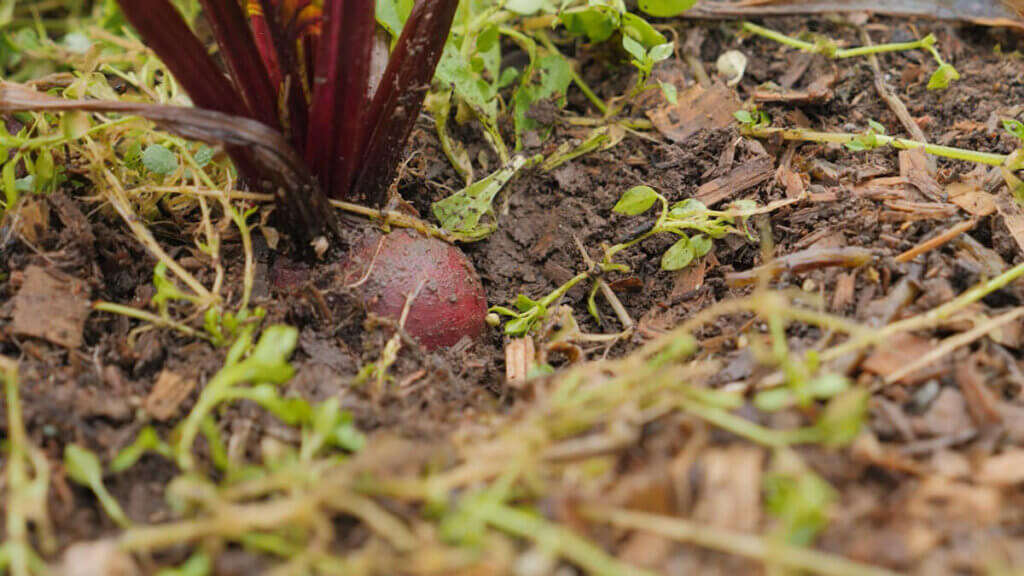
It's up to you and me to protect ourselves and our loved ones. I've been researching GMOs and how to keep them out of my food and kitchen, but most importantly, out of my body and my family. I hope this helps you in your efforts to lead a healthy life.
I discussed GMOs in the early days of my podcast, and my stance hasn't changed. You can listen to podcast episodes #11, Keeping GMOs Out of Your Food and #2, GMO 101:
In this guide to GMOs, I'll be taking you through the world of non-GMO foods. Nowadays, it's becoming increasingly common to hear about genetically engineered, genetically modified or bio-engineered foods and their potential impact on human health.
This is where non-GMO food options come in – they're becoming more popular as people start to understand their benefits. So, let's jump right in and explore why choosing non-GMO foods is important for your health and well-being.

When we talk about non-GMO foods, we're referring to products that have not been genetically modified or altered in any way through artificial means. Genetic modification involves the alteration of an organism's DNA in a laboratory to produce a desired trait. The result is a genetically modified organism (GMO), which may be used in food production or agriculture.
It's important to note that not all genetic modification is negative, and some can be used to produce crops that are more resistant to pests or better suited to specific growing conditions. However, concerns have been raised about the potential risks of consuming genetically modified crops and ingredients.
The GMO label is required by law in the United States for any food product that contains more than 5% genetically modified ingredients. This label makes it easier for consumers to identify products that contain GMOs and make informed decisions about what they eat.
Non-GMO foods are those that have not been genetically modified in any way. GMO foods, on the other hand, have had their DNA altered through genetic engineering. This can lead to changes in the nutritional profile of the food and may have long-term effects on human health.
Some common GMO crops in the United States include corn, soybeans, and canola. These crops are often used in processed foods as ingredients such as high-fructose corn syrup or soy lecithin.
Choosing non-GMO foods can help you avoid potential risks associated with genetically modified crops and ingredients. By opting for non-GMO options, you can prioritize your health and well-being.
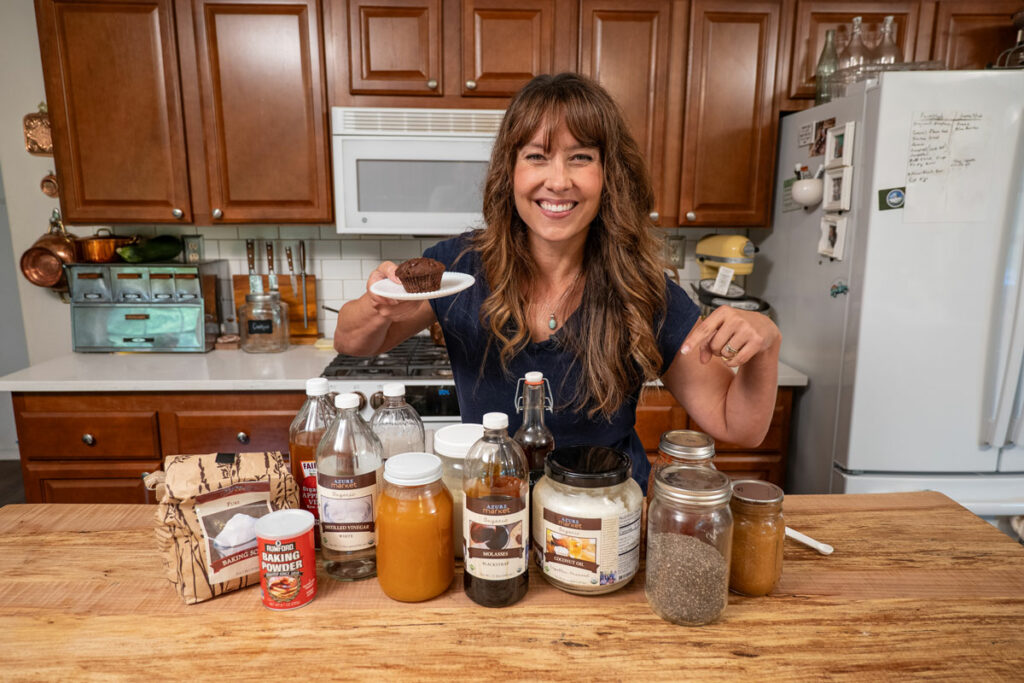
It's important to note that I'm not a doctor. This post is not intended to give medical advice, so always do your own research when making changes to your diet.
As I mentioned earlier, the impact of non-GMO foods on human health is a significant driver of their popularity. Many consumers opt for non-GMO products to reduce their exposure to genetically modified (GM) crops and ingredients. Research has highlighted several potential health benefits associated with non-GMO foods:
It's important to note that the scientific community has not reached a consensus on the health effects of GM crops. Some studies have suggested that they are safe for human consumption, while others have raised concerns about their potential impact on human health.
Regardless, many consumers opt for non-GMO products as a precautionary measure to reduce their exposure to GM crops and ingredients. By prioritizing non-GMO foods in your diet, you can take control of your health and make informed choices about the foods you consume.
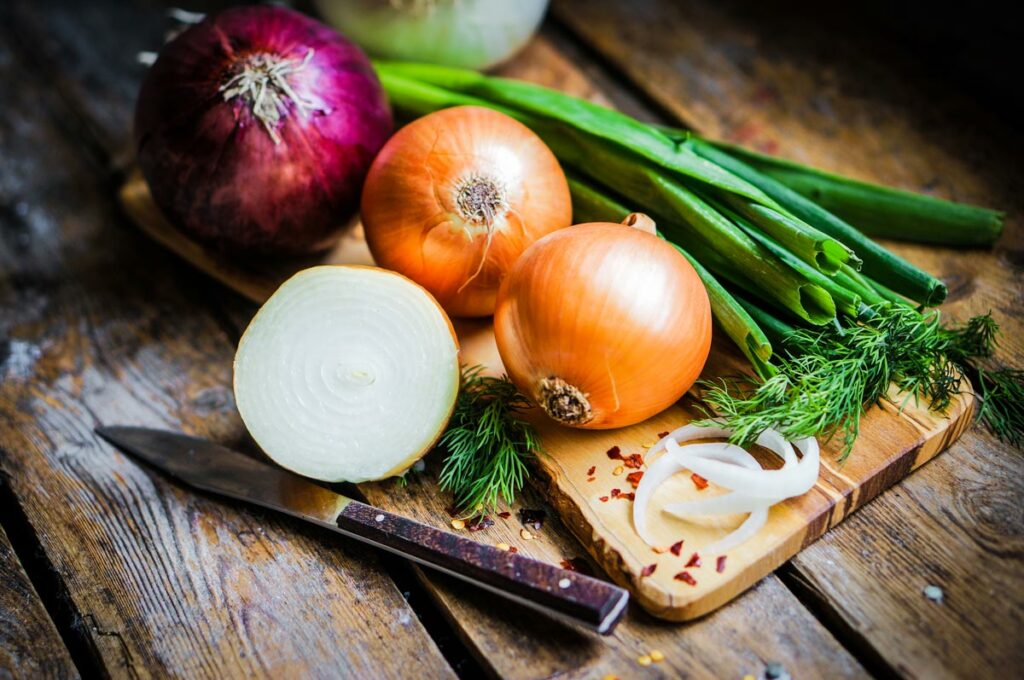
As consumers become increasingly aware of the benefits of non-GMO foods, food production companies are responding to meet this demand. Non-GMO foods are becoming more readily available as supply chains shift towards farming practices that avoid genetically engineered crops and ingredients.
Many food production companies are implementing strict non-GMO policies and procedures to ensure the products they offer are free from genetic modification. This includes working with non-GMO certified suppliers, testing ingredients, and labeling products as non-GMO. Some companies have even gone a step further and acquired third-party verification from organizations such as the Non-GMO Project, providing consumers with additional confidence in their food choices.
One notable area of focus for non-GMO food production is in the realm of organic farming. Organic farming practices prohibit the use of genetically modified seeds and crops, making organic foods a reliable non-GMO option for consumers. In fact, according to the Organic Trade Association, “certified organic products are essentially non-GMO.”
Non-GMO fruits and vegetables are also becoming more prevalent in agriculture. While genetically modified crops have been a mainstay in the farming industry for decades, farmers are reexamining their practices to incorporate non-GMO seeds and crops.
Through these efforts, consumers are gaining access to a wider range of non-GMO options in grocery stores and beyond. By supporting non-GMO food production, individuals are not only prioritizing their own health but also contributing to a more sustainable and diverse food system.
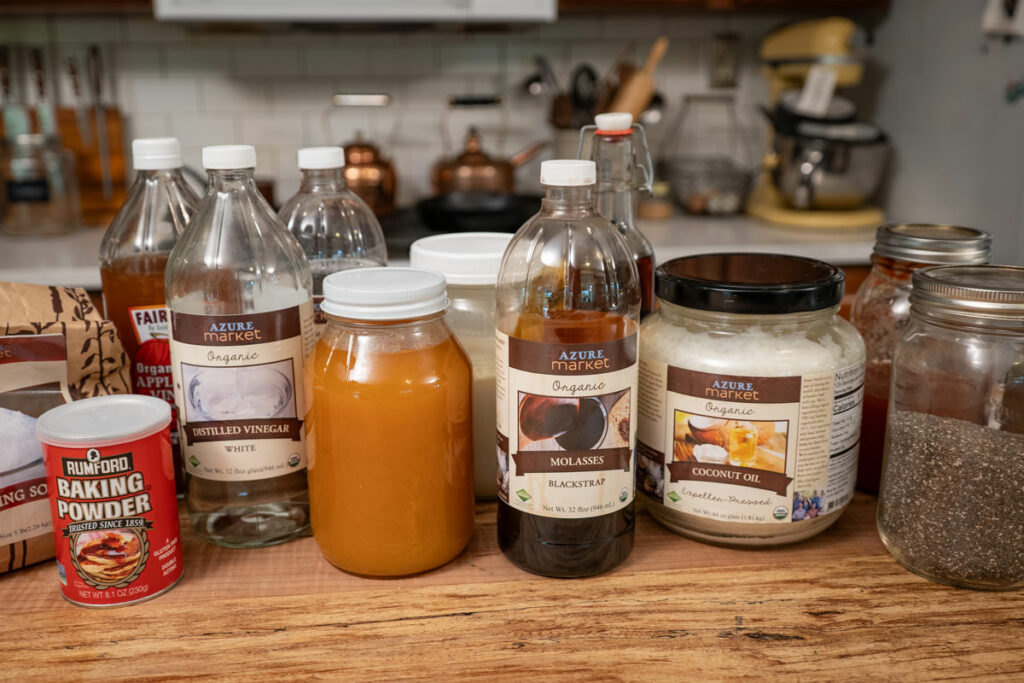
If you're looking to incorporate more non-GMO foods into your diet, grocery shopping is a great place to start. Here are some tips to help you navigate the aisles:
The Non-GMO Project is a non-profit organization that offers third-party verification for non-GMO products. Look for their label on the packaging to ensure that the product has been verified as non-GMO.
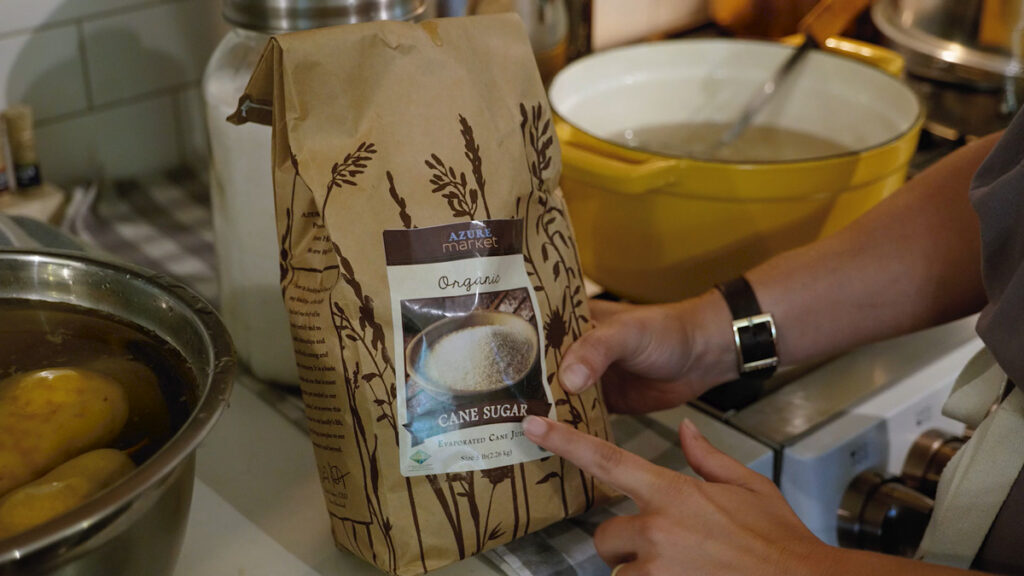
Organic food is a great way to avoid genetically engineered ingredients. Products that are labeled “100% organic” cannot contain any GMOs, while products labeled “organic” must contain at least 95% organic ingredients.
There are many brands that specialize in non-GMO products. Do some research and make a list of brands that prioritize non-GMO ingredients.
Health food stores are a great place to find non-GMO products. These stores typically have a wider selection of organic and non-GMO options than traditional grocery stores.
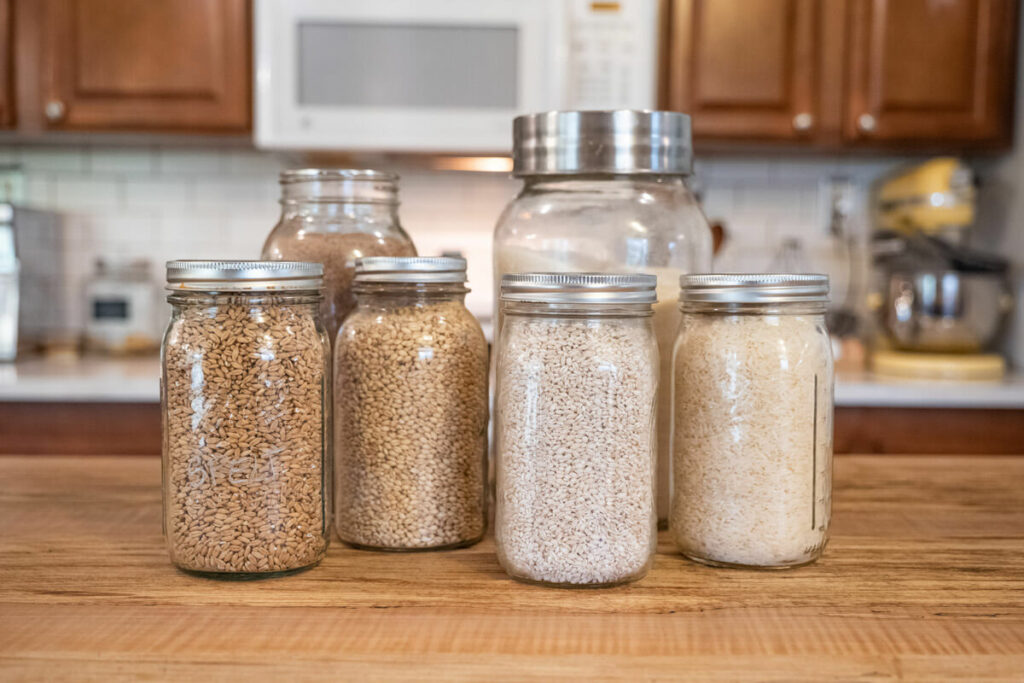
If possible, consider purchasing produce directly from farmers at local markets. This can be a great way to ensure that you're getting fresh, non-GMO fruits and vegetables.
By following these tips and prioritizing non-GMO options, you can make informed choices about the food you eat and contribute to a more sustainable food system.
For more info on GMOs and why I believe they're worse than suspected, read Is the Bible Against GMOs. Subscribe to the blog for more articles and soon-to-be-released podcasts to keep your family safe and healthy the pioneer way.
What are your biggest concerns about GMOs? How are you keeping your family safe? Do you grow a garden?
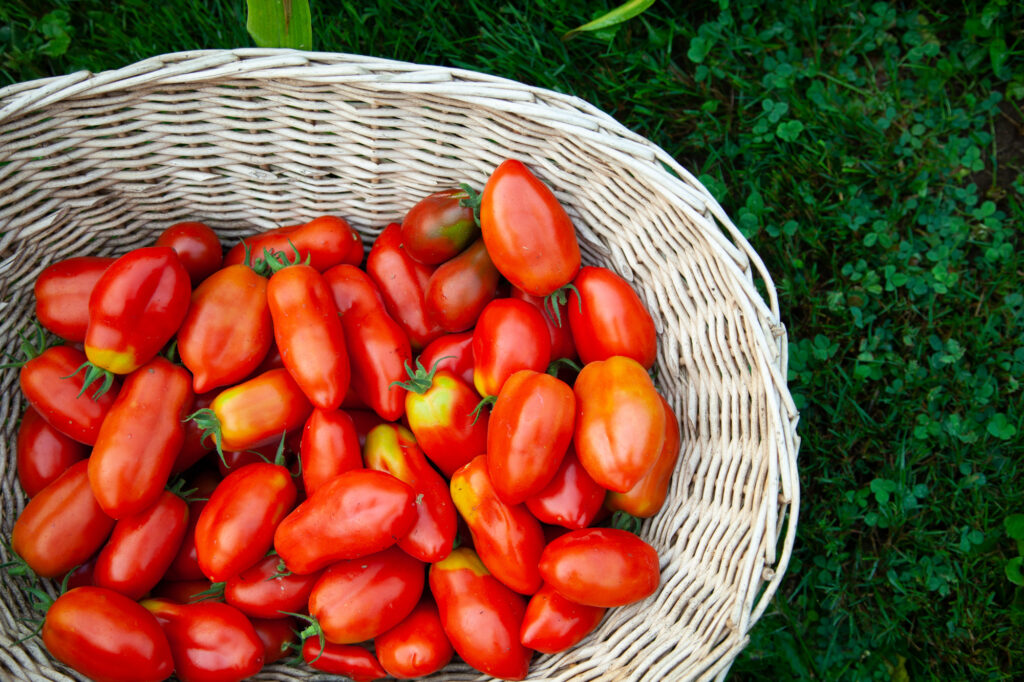
FAQ
What are non-GMO foods?
Non-GMO foods are those that have not been genetically modified or engineered. They are produced using traditional breeding methods and do not contain genetically modified organisms (GMOs).
What is the difference between genetically modified foods and non-GMO foods?
Genetically modified foods, often referred to as GMOs, have been altered at the genetic level to exhibit certain traits. Non-GMO foods, on the other hand, are produced without any genetic modifications.
Why should I choose non-GMO foods?
Opting for non-GMO foods can help support a more natural and sustainable food system. They are also believed to have potential health benefits, as studies suggest that GMOs may have adverse effects on human health.
How can I identify non-GMO products while grocery shopping?
Look for products that are labeled as “Non-GMO Project Verified.” This certification ensures that the product has undergone rigorous testing and meets the organization's strict standards for non-GMO ingredients.
Are non-GMO foods more expensive?
Non-GMO foods can sometimes be slightly more expensive than their genetically modified counterparts. This is partly due to the additional cost of sourcing non-GMO ingredients and the stringent testing and verification processes.
Where can I find non-GMO foods?
Non-GMO foods can be found in many grocery stores, particularly those that specialize in organic products. Look for dedicated sections or labels indicating non-GMO options.
Are organic foods always non-GMO?
While organic foods often align with non-GMO principles, it is important to note that not all organic foods are automatically non-GMO. The organic label focuses on farming practices, whereas the non-GMO label specifically refers to the absence of genetically engineered ingredients.
Are non-GMO foods better for the environment?
Non-GMO foods, by avoiding genetically modified crops, can contribute to a more sustainable and diverse agricultural system. Maintaining genetic diversity helps support natural ecosystems and reduces reliance on a limited number of genetically engineered crops.
The post Non-GMO Foods & How to Avoid GMOs appeared first on Melissa K. Norris.

It's up to you and me to protect ourselves and our loved ones. I've been researching GMOs and how to keep them out of my food and kitchen, but most importantly, out of my body and my family. I hope this helps you in your efforts to lead a healthy life.
I discussed GMOs in the early days of my podcast, and my stance hasn't changed. You can listen to podcast episodes #11, Keeping GMOs Out of Your Food and #2, GMO 101:
In this guide to GMOs, I'll be taking you through the world of non-GMO foods. Nowadays, it's becoming increasingly common to hear about genetically engineered, genetically modified or bio-engineered foods and their potential impact on human health.
This is where non-GMO food options come in – they're becoming more popular as people start to understand their benefits. So, let's jump right in and explore why choosing non-GMO foods is important for your health and well-being.

Understanding Non-GMO Foods
When we talk about non-GMO foods, we're referring to products that have not been genetically modified or altered in any way through artificial means. Genetic modification involves the alteration of an organism's DNA in a laboratory to produce a desired trait. The result is a genetically modified organism (GMO), which may be used in food production or agriculture.
It's important to note that not all genetic modification is negative, and some can be used to produce crops that are more resistant to pests or better suited to specific growing conditions. However, concerns have been raised about the potential risks of consuming genetically modified crops and ingredients.
The GMO label is required by law in the United States for any food product that contains more than 5% genetically modified ingredients. This label makes it easier for consumers to identify products that contain GMOs and make informed decisions about what they eat.
The Difference Between Non-GMO and GMO Foods
Non-GMO foods are those that have not been genetically modified in any way. GMO foods, on the other hand, have had their DNA altered through genetic engineering. This can lead to changes in the nutritional profile of the food and may have long-term effects on human health.
Some common GMO crops in the United States include corn, soybeans, and canola. These crops are often used in processed foods as ingredients such as high-fructose corn syrup or soy lecithin.
Choosing non-GMO foods can help you avoid potential risks associated with genetically modified crops and ingredients. By opting for non-GMO options, you can prioritize your health and well-being.

The Health Benefits of Non-GMO Foods
It's important to note that I'm not a doctor. This post is not intended to give medical advice, so always do your own research when making changes to your diet.
As I mentioned earlier, the impact of non-GMO foods on human health is a significant driver of their popularity. Many consumers opt for non-GMO products to reduce their exposure to genetically modified (GM) crops and ingredients. Research has highlighted several potential health benefits associated with non-GMO foods:
- Reduced allergenicity: GM crops can cause unintended changes in their protein composition, which can lead to allergic reactions in some individuals. Non-GMO foods are often a safer choice for people with food allergies or sensitivities.
- Improved digestion: Non-GMO foods are often grown using traditional farming techniques that prioritize soil health and biodiversity. As a result, they may be easier to digest and provide more of the nutrients we need to stay healthy. (Source)
- Lower risk of pesticide exposure: GM crops are often engineered to resist herbicides and pesticides, which can lead to increased use of these chemicals in the field. By choosing non-GMO products, consumers can reduce their exposure to potentially harmful chemicals.
- Better taste and quality: Many supporters of non-GMO foods argue that they taste better and are of higher quality than their GM counterparts. While this may be subjective, it's worth noting that non-GMO foods are often grown using more traditional, time-tested methods that prioritize flavor and texture.
It's important to note that the scientific community has not reached a consensus on the health effects of GM crops. Some studies have suggested that they are safe for human consumption, while others have raised concerns about their potential impact on human health.
“Research has highlighted several potential health benefits associated with non-GMO foods.”
Regardless, many consumers opt for non-GMO products as a precautionary measure to reduce their exposure to GM crops and ingredients. By prioritizing non-GMO foods in your diet, you can take control of your health and make informed choices about the foods you consume.

Non-GMO Foods in Food Production
As consumers become increasingly aware of the benefits of non-GMO foods, food production companies are responding to meet this demand. Non-GMO foods are becoming more readily available as supply chains shift towards farming practices that avoid genetically engineered crops and ingredients.
Many food production companies are implementing strict non-GMO policies and procedures to ensure the products they offer are free from genetic modification. This includes working with non-GMO certified suppliers, testing ingredients, and labeling products as non-GMO. Some companies have even gone a step further and acquired third-party verification from organizations such as the Non-GMO Project, providing consumers with additional confidence in their food choices.
One notable area of focus for non-GMO food production is in the realm of organic farming. Organic farming practices prohibit the use of genetically modified seeds and crops, making organic foods a reliable non-GMO option for consumers. In fact, according to the Organic Trade Association, “certified organic products are essentially non-GMO.”
Non-GMO Foods in Agriculture
Non-GMO fruits and vegetables are also becoming more prevalent in agriculture. While genetically modified crops have been a mainstay in the farming industry for decades, farmers are reexamining their practices to incorporate non-GMO seeds and crops.
| Non-GMO Food Production | Benefits |
|---|---|
| Farming without genetically engineered crops | Reduces the risk of environmental damage and promotes sustainable agriculture. |
| More diversified food system | Encourages the production of a variety of crops rather than relying on a single genetically modified crop. |
| Higher potential for long-term soil health | Encourages the production of a variety of crops rather than relying on a single genetically modified crop. |
Through these efforts, consumers are gaining access to a wider range of non-GMO options in grocery stores and beyond. By supporting non-GMO food production, individuals are not only prioritizing their own health but also contributing to a more sustainable and diverse food system.

Shopping for Non-GMO Foods
If you're looking to incorporate more non-GMO foods into your diet, grocery shopping is a great place to start. Here are some tips to help you navigate the aisles:
Look for Non-GMO Project Verified Products
The Non-GMO Project is a non-profit organization that offers third-party verification for non-GMO products. Look for their label on the packaging to ensure that the product has been verified as non-GMO.

Seek Out Organic Food
Organic food is a great way to avoid genetically engineered ingredients. Products that are labeled “100% organic” cannot contain any GMOs, while products labeled “organic” must contain at least 95% organic ingredients.
Familiarize Yourself with GMO-Free Brands
There are many brands that specialize in non-GMO products. Do some research and make a list of brands that prioritize non-GMO ingredients.
Shop at Health Food Stores
Health food stores are a great place to find non-GMO products. These stores typically have a wider selection of organic and non-GMO options than traditional grocery stores.

Consider Buying Directly from Farmers
If possible, consider purchasing produce directly from farmers at local markets. This can be a great way to ensure that you're getting fresh, non-GMO fruits and vegetables.
By following these tips and prioritizing non-GMO options, you can make informed choices about the food you eat and contribute to a more sustainable food system.
For more info on GMOs and why I believe they're worse than suspected, read Is the Bible Against GMOs. Subscribe to the blog for more articles and soon-to-be-released podcasts to keep your family safe and healthy the pioneer way.
What are your biggest concerns about GMOs? How are you keeping your family safe? Do you grow a garden?

FAQ
What are non-GMO foods?
Non-GMO foods are those that have not been genetically modified or engineered. They are produced using traditional breeding methods and do not contain genetically modified organisms (GMOs).
What is the difference between genetically modified foods and non-GMO foods?
Genetically modified foods, often referred to as GMOs, have been altered at the genetic level to exhibit certain traits. Non-GMO foods, on the other hand, are produced without any genetic modifications.
Why should I choose non-GMO foods?
Opting for non-GMO foods can help support a more natural and sustainable food system. They are also believed to have potential health benefits, as studies suggest that GMOs may have adverse effects on human health.
How can I identify non-GMO products while grocery shopping?
Look for products that are labeled as “Non-GMO Project Verified.” This certification ensures that the product has undergone rigorous testing and meets the organization's strict standards for non-GMO ingredients.
Are non-GMO foods more expensive?
Non-GMO foods can sometimes be slightly more expensive than their genetically modified counterparts. This is partly due to the additional cost of sourcing non-GMO ingredients and the stringent testing and verification processes.
Where can I find non-GMO foods?
Non-GMO foods can be found in many grocery stores, particularly those that specialize in organic products. Look for dedicated sections or labels indicating non-GMO options.
Are organic foods always non-GMO?
While organic foods often align with non-GMO principles, it is important to note that not all organic foods are automatically non-GMO. The organic label focuses on farming practices, whereas the non-GMO label specifically refers to the absence of genetically engineered ingredients.
Are non-GMO foods better for the environment?
Non-GMO foods, by avoiding genetically modified crops, can contribute to a more sustainable and diverse agricultural system. Maintaining genetic diversity helps support natural ecosystems and reduces reliance on a limited number of genetically engineered crops.
More Posts You May Enjoy
- 13 Healthy Ingredients to Swap Out Now
- Baking Substitutions Everyone Should Know
- What is A2 Milk & What are the Benefits?
- Rebekah Rhodes’ Journey with Auto-Immune Disease
- Unplugging for One Year with Rory Feek
The post Non-GMO Foods & How to Avoid GMOs appeared first on Melissa K. Norris.
